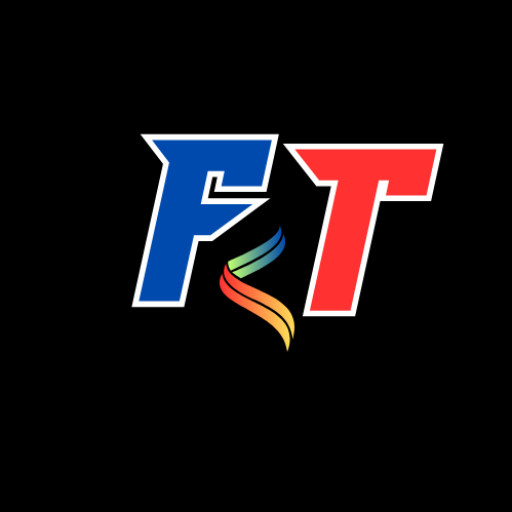
Introduction:
The digital world has long been dominated by Wikipedia, the go-to platform for millions seeking quick, reliable information. However, the launch of a Wikipedia rival marks a significant milestone in the evolution of online knowledge-sharing. As an increasing number of users demand more transparency, inclusivity, and diversity in their online sources, a wave of Wikipedia alternatives has emerged, offering fresh approaches to organizing and sharing information.
In this article, we’ll explore what makes this new online encyclopedia stand out, its key features, and the reasons it could be a game-changer. We’ll also dive into how it positions itself as a wiki competitor, its role in the growing demand for open-source knowledge platforms, and how it could transform the way we access information online.
The Rise of Wikipedia and Its Limitations
Since its launch in 2001, Wikipedia has revolutionized how people find information, offering a vast, crowd-sourced encyclopedia with contributions from volunteers worldwide. Its success lies in its collaborative model and its ability to make knowledge freely accessible.
However, Wikipedia is not without its challenges. Some of the primary criticisms include:
- Bias in content: Critics have pointed out systemic biases in the platform’s articles, particularly under-representation of certain cultures, regions, and perspectives.
- Editor gatekeeping: While Wikipedia is collaborative, its editing community can sometimes seem exclusive, discouraging new contributors.
- Reliance on donations: The platform’s dependence on user donations raises concerns about its financial sustainability.
These limitations have created a gap for Wikipedia challengers to fill, offering fresh alternatives to address these concerns while maintaining the open access that makes Wikipedia popular.
Introducing the Wikipedia Rival
The digital encyclopedia launch of this new wiki project has sparked significant interest in the tech and educational communities. Positioned as a community-driven knowledge base, this platform promises to be an inclusive and innovative knowledge-sharing website.
Key Features of This Rival to Wikipedia:
- Diversity of Perspectives: The platform aims to feature voices and topics underrepresented on traditional wikis, fostering inclusivity.
- Transparent Content Verification: Unlike Wikipedia’s anonymous editing, the new platform introduces a system for tracking contributor expertise and accountability.
- Enhanced Collaboration Tools: As a collaborative information platform, it incorporates advanced tools like AI-assisted editing, discussion boards, and topic-focused communities.
- Open-Source Approach: Following the trend of open-source knowledge platforms, the platform’s code and data are freely accessible for developers and researchers.
- Ad-Free User Experience: Unlike some free platforms, the rival offers an ad-free browsing experience supported by grants and subscriptions.
These features position it as a promising knowledge-sharing alternative, catering to modern demands for transparency, diversity, and engagement in online content creation.
Why the World Needs a Wikipedia Alternative
The dominance of a single platform like Wikipedia creates a centralization of knowledge that can be both beneficial and limiting. Here’s why a strong wiki competitor is a necessity:
1. Encouraging Competition
Healthy competition drives innovation. The launch of a Wikipedia rival ensures constant improvements in user experience, accessibility, and quality of content across platforms.
2. Filling Content Gaps
Many experts and marginalized communities feel their knowledge is overlooked. A community-driven knowledge base can actively address these gaps, providing a more comprehensive global perspective.
3. Technological Innovation
While Wikipedia relies on older technologies, newer open encyclopedia platforms can integrate cutting-edge tools like machine learning for content organization or blockchain for secure editing records.
4. Offering Different Philosophies
A knowledge-sharing website with different guiding principles—such as ethical governance or profit-sharing among contributors—presents a fresh approach to digital collaboration.
What Makes a Successful Knowledge-Sharing Website?
To stand out as a Wikipedia alternative, the platform must meet certain criteria:
1. Accessibility and Usability
The platform must provide an intuitive interface, ensuring users of all ages and technical abilities can easily contribute and access information.
2. Transparency in Content Creation
Trust in information is critical. Clear contributor credentials, verified sources, and transparent editorial processes help build credibility.
3. Community Engagement
As a collaborative information platform, fostering a sense of community is key. Discussion forums, contributor recognition, and voting systems for content approval can strengthen user engagement.
4. Sustainability
Whether through grants, donations, or subscription models, the platform must ensure financial stability without compromising its independence.
Potential Challenges for a Wikipedia Rival
Launching a wiki competitor is no small feat, and any platform seeking to challenge Wikipedia must navigate the following hurdles:
- Building a Contributor Base: Recruiting and retaining knowledgeable contributors is crucial for ensuring the depth and breadth of content.
- Establishing Credibility: Competing with Wikipedia’s long-standing reputation will take time and effort.
- Achieving Financial Stability: Balancing free access with sustainable funding models can be challenging.
- Avoiding Bias: Ensuring fair representation of diverse perspectives requires strong governance and active community moderation.
Examples of Existing Wikipedia Alternatives
While this new platform has generated buzz, it’s not the first to position itself as a rival to Wikipedia. Let’s take a look at some notable free online encyclopedias:
- Everipedia: A blockchain-based platform offering decentralized editing and transparent content tracking.
- Citizendium: Focused on expert-authored content with a more controlled editing environment.
- Scholarpedia: Specializes in academic and scientific content written by scholars.
- Wikiversity: A project under the Wikimedia umbrella, emphasizing educational resources and learning materials.
Each of these platforms demonstrates how diverse approaches can coexist in the world of online knowledge repositories.
The Future of Digital Knowledge Platforms
The launch of a Wikipedia rival signals a broader shift in how we interact with and share information online. As new knowledge-sharing websites continue to emerge, we can expect exciting trends, including:
- AI-Driven Collaboration: Automation tools will assist in generating, curating, and verifying content.
- Greater Inclusivity: More platforms will focus on giving underrepresented communities a voice.
- Open Access Advocacy: The movement toward free, unrestricted information will remain central to the development of digital encyclopedias.
Ultimately, the competition will only enrich the landscape of online knowledge, benefiting users worldwide.
Conclusion
The launch of a Wikipedia rival represents a pivotal moment in the evolution of online knowledge-sharing. By addressing the limitations of existing platforms and introducing innovative features, this new wiki project has the potential to reshape the way we access and contribute to information.
As the digital world continues to grow, the demand for diverse, transparent, and user-friendly knowledge-sharing alternatives will only increase. For users, this means more options and richer, more inclusive content. For creators, it offers exciting opportunities to contribute to a new era of online collaboration.
For more interesting blogs, visit our site: https://futuretrendz.co.uk/
Frequently Asked Questions (FAQs)
1. What is a Wikipedia rival?
A Wikipedia rival is an online knowledge repository or platform designed to compete with Wikipedia by offering alternative features, governance models, or content focuses.
2. Why do we need Wikipedia alternatives?
Wikipedia, while popular, has limitations such as systemic bias and exclusivity. Alternatives can address these gaps, providing diverse perspectives, advanced technology, and improved user experiences.
3. How do Wikipedia challengers ensure credibility?
Most challengers implement transparent verification processes, track contributor credentials, and encourage accountability through community moderation.
4. Are there any successful Wikipedia competitors currently?
Platforms like Everipedia, Citizendium, and Scholarpedia have established themselves as notable Wikipedia alternatives, each offering unique features and specializations.
5. How can I contribute to a new wiki project?
You can join as a contributor by creating an account, submitting articles, or editing existing content. Some platforms also encourage users to participate in discussions or governance processes.







